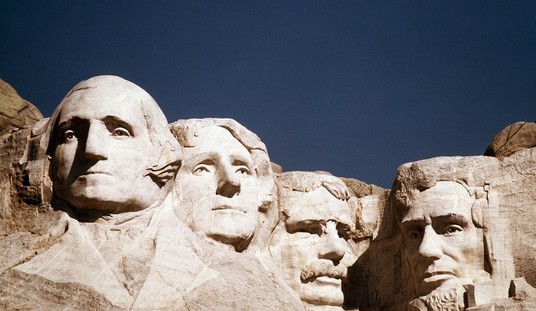Now that they control both elective branches of government, Democrats have quietly pushed through one of their long-held goals, a voting seat for DC in the House of Representatives. In order to gain Republican support, they have drafted a bill that would also add another voting seat for Utah to maintain the partisan balance. However, as Hugh Hewitt points out, the method of adding two seats to the House fails Constitutional muster:
Debate opened Monday on a bill to give the 600,000 people of Washington D.C. a full vote in the House. A new Democratic president, Barack Obama, and heftier Democratic majorities in Congress have improved the prospects for the decades-long effort that would certainly ensure another Democrat lawmaker in Congress.
Democrats outnumber Republicans by some 4-to-1 in the capital.
In a bit of horsetrading to offset the Democratic pickup, the bill would award a fourth House seat to Republican-leaning Utah, which narrowly missed getting that extra seat after the 2000 national census. With the two new seats, the House would have 437 representatives.
But can the House add seats without a Constitutional amendment, and separate from a census?
Opponents argue that the constitutional amendment route is still the only legitimate way to go, pointing to Article I, Section 2 of the Constitution, which says members of the House should be chosen “by the people of the several states.” The District of Columbia, of course, is not a state.
On the other side, supporters cite language in the Constitution that gives Congress legislative authority over the District “in all cases whatsoever.” They contend that for 200 years federal courts have framed the District’s laws in terms of those that apply to the states.
Congress has authority over DC “in all cases whatsoever” — in managing the District. It does not have the unilateral authority to enlarge itself, especially at the expense of other states. Any addition of representatives to one or two states acts to dilute the voting power of the rest, which is why the Constitution ties representation to the Census. If Congress wants to change that calculation, it has to come through the amendment process and get the approval of three-quarters of the states.
Why don’t the Democrats simply push for a Constitutional amendment? They don’t have the votes, not in Congress and not in the states. They tried that thirty-one years ago, when Democrats had larger majorities in both chambers of Congress than they do now, and they couldn’t get enough states to approve it.
Hugh wonders who would have standing to haul Congress into court to challenge the constitutionality of this bill, which will almost surely sail through Congress and get signed by Barack Obama. I’d guess that one of the states would have to sue, claiming damage to its voting power in Congress with the addition of the two seats. Perhaps that challenge would come first from Texas, but I’d prefer that a few states jumped in together to make the point even more clear.







Join the conversation as a VIP Member